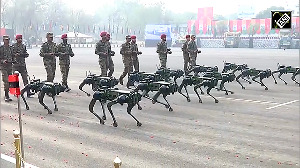Bullish over the outcome of the Hong Kong World Trade Organisation ministerial, Commerce Minister Kamal Nath on Monday said the agreement addresses the concerns of both agriculture and industrial sectors and would drive India's farm and manufacturing exports in the global markets.
"The agreement fully secures the concerns of our farmers. It ensures that no subsidy-ridden farm products are exported to India... the phase out of export subsidies by developed countries would also give Indian farmers a chance to compete in the world market," Nath said on his arrival in New Delhi from Hong Kong.
India and the WTO: News and Issues
According to the declaration, developed countries will have to eliminate their export subsidies by 2013 while reducing them substantially by 2010.
Nath said the success was the result of the strategy of India forming a grand coalition of developing countries (G-110) at the sixth WTO Ministerial, which ended on Sunday.
The agreement protects domestic farmers against surge in imports through the provisions of Special Products and Special Safeguard Mechanism that have been included in the ministerial declaration, he said.
Under the provisions of Special Products, India and other developing countries would not have to cut tariffs on a specific number of products while SSM incorporates both price and volume triggers to check a surge in cheap imports.





 © 2025
© 2025